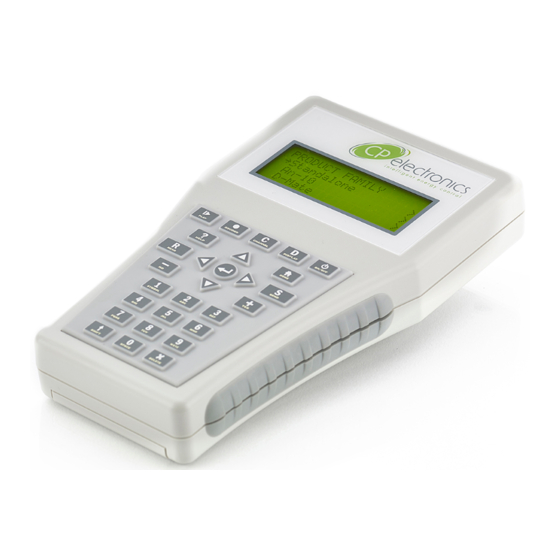
Table of Contents
Advertisement
Quick Links
Standalone Presence Detectors
Programming Manual
UHS5
Compact, programming/
commissioning handset
Downloads and Videos
cpelectronics.co.uk/cp/442
Standalone Presence Detectors
UNLCDHS
Professional, programming/
commissioning LCD handset
Downloads and Videos
cpelectronics.co.uk/cp/444
WD841 Issue 4
Programming Manual
Advertisement
Table of Contents












Need help?
Do you have a question about the UNLCDHS and is the answer not in the manual?
Questions and answers